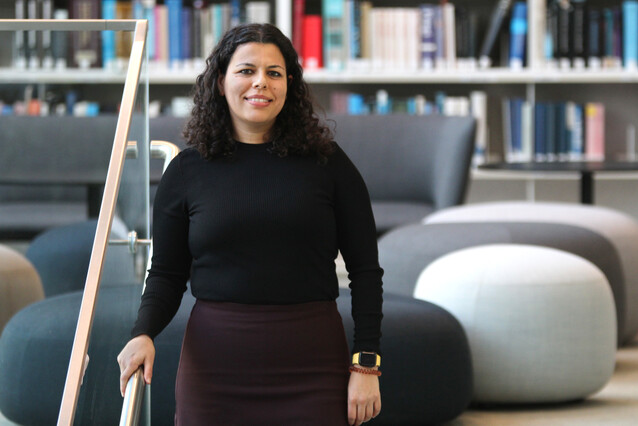EMBO fellowship for IMP postdoc Amena Nabih
Amena Nabih, who joined the lab of Andrea Pauli as a postdoc earlier this year to study how maternal age influences embryo development, received a prestigious EMBO fellowship.
Awarded for up to two years, EMBO Postdoctoral Fellowshipssupport excellent postdoctoral researchers throughout Europe and the world for a period of up to two years. International mobility is a key requirement. Awardees can attend an EMBO Laboratory Leadership course and become part of the global network of EMBO Fellows.
Declining egg quality due to aging is a major contributor to female infertility. The development of a fertilised egg into an embryo depends on complex gene regulatory processes that rely heavily on maternal contributions, including genetic material, essential biomolecules–such as RNAs and proteins–, and organelles. A critical factor in this transition involves messenger RNAs (mRNAs)—which carries DNA instructions to make proteins—specifically their 3' untranslated region (3'UTR) and polyA-tail. These elements work together to regulate mRNA stability, degradation, and translation. Proper timing of translation during the oocyte-to-embryo transition requires tightly controlled changes in the polyA-tail length and 3’UTR composition of these mRNAs.
However, scientists still do not understand how alterations in 3'UTR composition and polyA-tail length impact developmental competence with maternal age. Using zebrafish as a model, Amena Nabih will research the molecular basis of age-related changes in developmental competence, focusing on post-transcriptional gene regulation.
Nabih studied biology at Queen’s University in Kingston, Canada. Her initial experience in developmental biology came during her Master’s in molecular genetics at the University of Toronto in Julie Claycomb’s lab. She later earned her PhD at ETH Zurich, where she explored mechanisms of transcriptional and post-transcriptional gene regulation in mammals in the labs of Stefanie Jonas and Constance Ciaudo.
Further Reading
Andrea Pauli lab (IMP)
Paulilab.org
